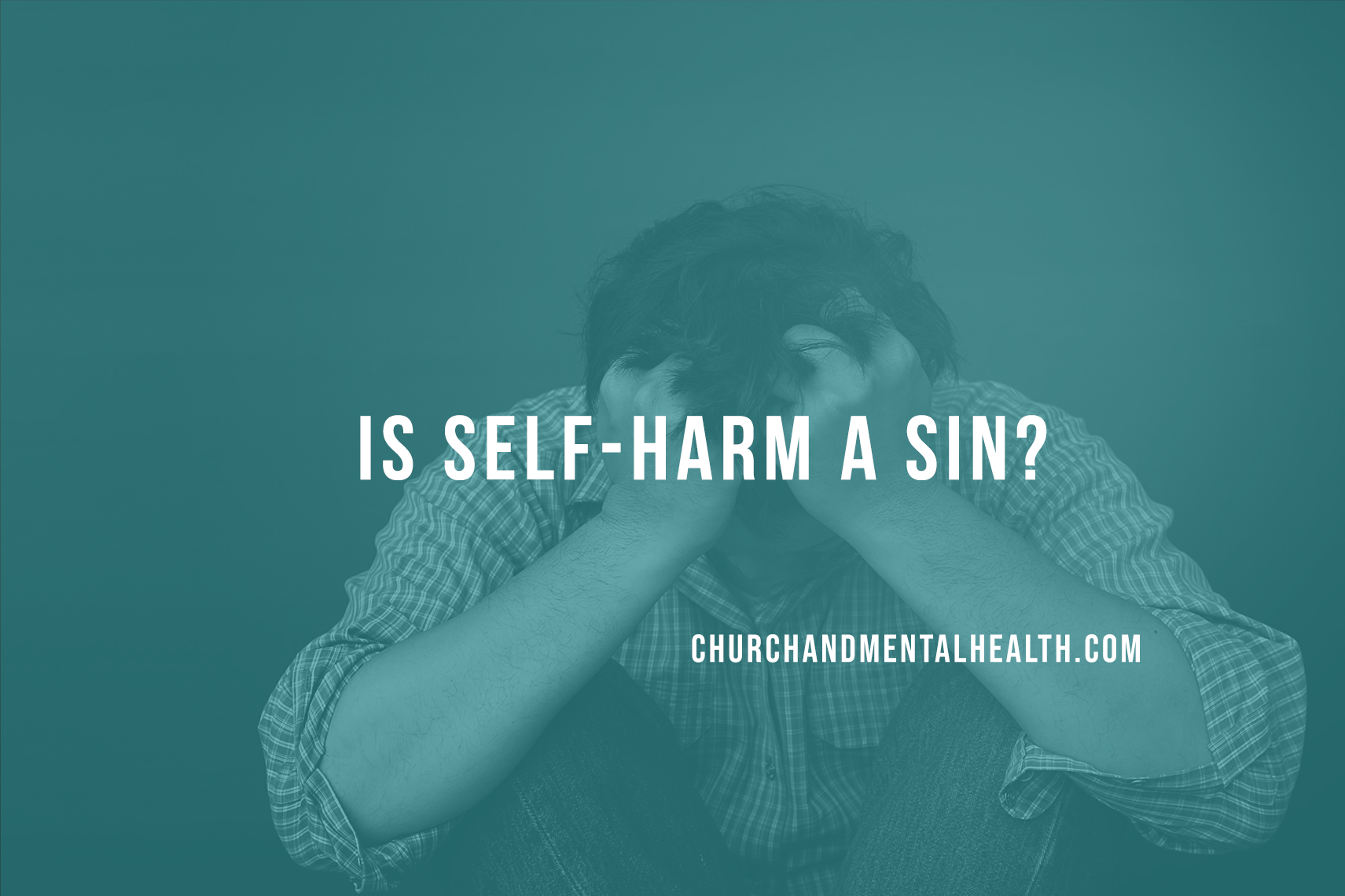In recent years, many pastors and Christian leaders have encountered heartbreaking conversations with congregants, youth and adults alike, who are struggling with self-harm. Behind the worship songs, Sunday smiles, and faithful service, some are silently suffering, using self-harm as what they feel is the only viable coping mechanism in the moment for their deep emotional pain. The question often arises in these sacred pastoral moments: Is self-harm a sin?
As a Christian clinical counselor, I want to help pastors and church leaders understand the theological, emotional, and spiritual dimensions of self-harm. More than just offering a simple answer, we must examine the entire counsel of Scripture, hold space for compassion, and be equipped with appropriate resources. These are difficult conversations to have, but that is the job as a pastor or Christian counselor.
The Theology of the Body and Self-Harm
At its core, self-harm is the act of intentionally causing injury to one’s own body, often as a way to manage overwhelming emotional pain, numbness, or trauma. Common forms include cutting, burning, hitting oneself, or even sabotaging one’s physical health.
Does the Bible speak about this? While self-harm is not directly mentioned in modern terms, Scripture gives us principles that clearly relate.
Paul writes in 1 Corinthians 6:19-20 (NIV):
“Do you not know that your bodies are temples of the Holy Spirit, who is in you, whom you have received from God? You are not your own; you were bought at a price. Therefore honor God with your bodies.”
This passage reminds us that our bodies are sacred, not disposable. God values our entire being—body, soul, and spirit. Self-harm distorts that truth and reveals a heart in crisis. It’s less an act of rebellion and more often a cry for help.
Some believers, out of guilt or confusion, may ask: “Is this sin? Am I offending God?“
According to United Church of God’s article on self-harm, self-harm can be seen as contrary to God’s design for our bodies and life. However, the article also emphasizes that those who self-harm are usually not sinning with willful rebellion, but out of emotional and spiritual brokenness. Sin is sin, but how pastors and counselors approach someone who is broken in spirit and mind is important.
This distinction is vital for pastors and ministry leaders. People who self-harm often already carry unbearable shame. Our role is not to shame them further, but to extend grace, truth, and healing.
Christ’s Compassion for the Wounded
We must remember that Jesus came for the broken. Isaiah 53:5 tells us:
“But he was pierced for our transgressions, he was crushed for our iniquities; the punishment that brought us peace was on him, and by his wounds we are healed.”
Christ understands pain, grief, and being wounded. The Gospel is not just good news for the spiritually lost, but also for those who are emotionally hurting. The cross doesn’t just deal with our sin, it also touches our suffering.
In their article, Focus on the Family beautifully reminds readers that “Jesus Christ has scars, too.” They urge those who self-harm to know that Christ accepts them, but invites them to bring their wounds to Him. This is a message pastors can share with both youth and adults: You are not alone. You are loved. There is healing.
How Pastors Can Respond to Self-Harm
When a congregant, especially a teen or young adult, confesses that they’re self-harming, the moment is sacred—and it matters deeply how we respond.
1. Listen Without Judgment
Avoid immediate spiritual clichés. Instead of saying “This is a sin,” say: “Thank you for trusting me with this. I’m so sorry you’re hurting.” Reflect Christ’s gentleness.
2. Normalize Help-Seeking
Many Christians believe they must fix everything spiritually. But emotional and mental health often require professional counseling. Offer to walk with them as they seek help from a licensed Christian therapist or mental health professional.
3. Refer and Resource
Pastors should have a referral list ready that includes:
- Local Christian counselors
- Crisis hotlines (e.g., 988 Suicide & Crisis Lifeline)
- Christian inpatient programs, if necessary. (Consult with local counseling agencies for good referrals)
Equip youth workers and small group leaders with resources from Focus on the Family, American Association of Christian Counselors (AACC), and other biblically rooted counseling ministries.
4. Partner With Parents (for Minors)
If a youth discloses self-harm, pastors must involve parents, unless there is an immediate risk of abuse at home. Offer to help facilitate the conversation. Encourage families to respond with compassion, not fear or punishment.
A Message of Hope
If you’re a pastor reading this, know this: You are not expected to “fix” this alone. But your presence, your nonjudgmental love, and your willingness to guide someone to professional help may be the turning point in someone’s journey toward healing.
To those who are self-harming: God sees you. God grieves your pain. And there is hope. Romans 8:38–39 assures us that “nothing can separate us from the love of God that is in Christ Jesus our Lord.”
Final Thoughts
Self-harm is not just a behavior—it’s a sign of internal suffering. It’s not an issue of rebellion, but of brokenness. While it violates God’s intent for our bodies, His mercy meets us in our lowest places. The Church must be a place where wounded souls find safety, not shame.
Let’s speak the truth in love (Ephesians 4:15) and be the hands and feet of Jesus to those whose own hands bear scars.
